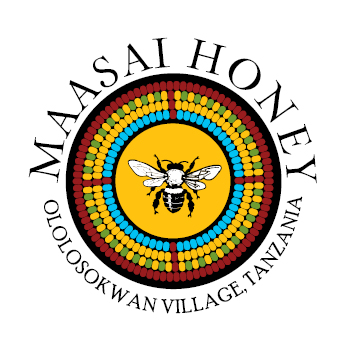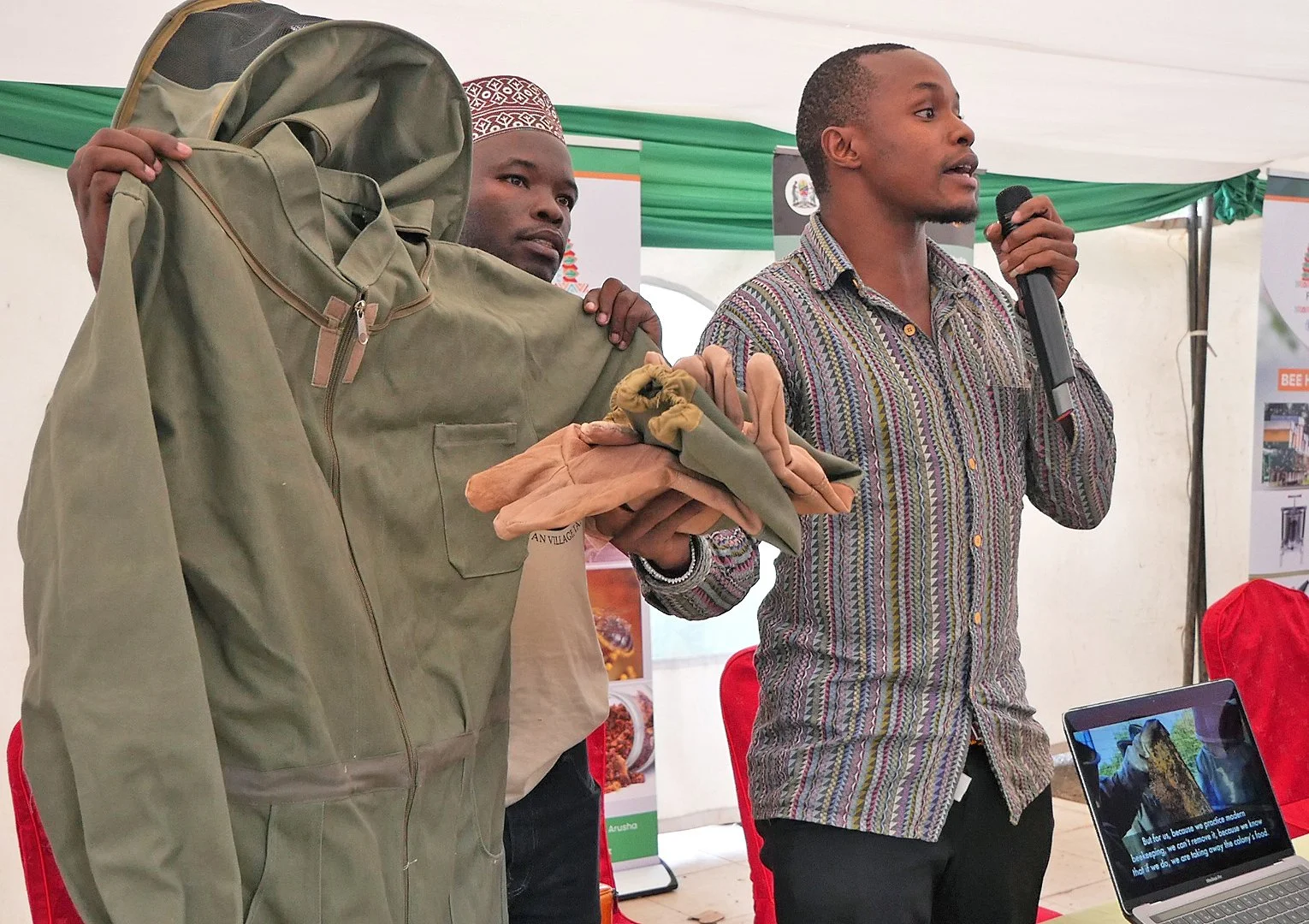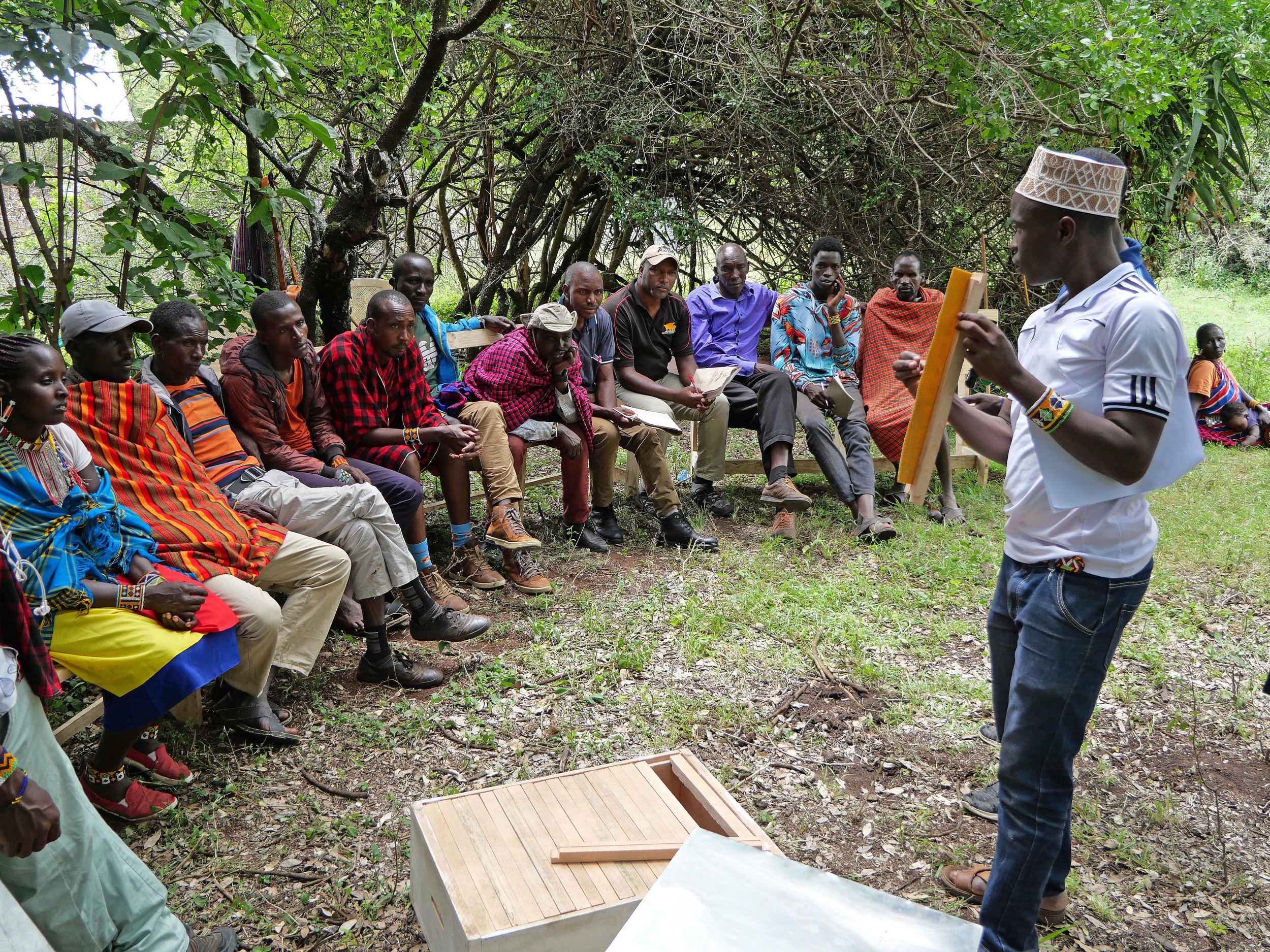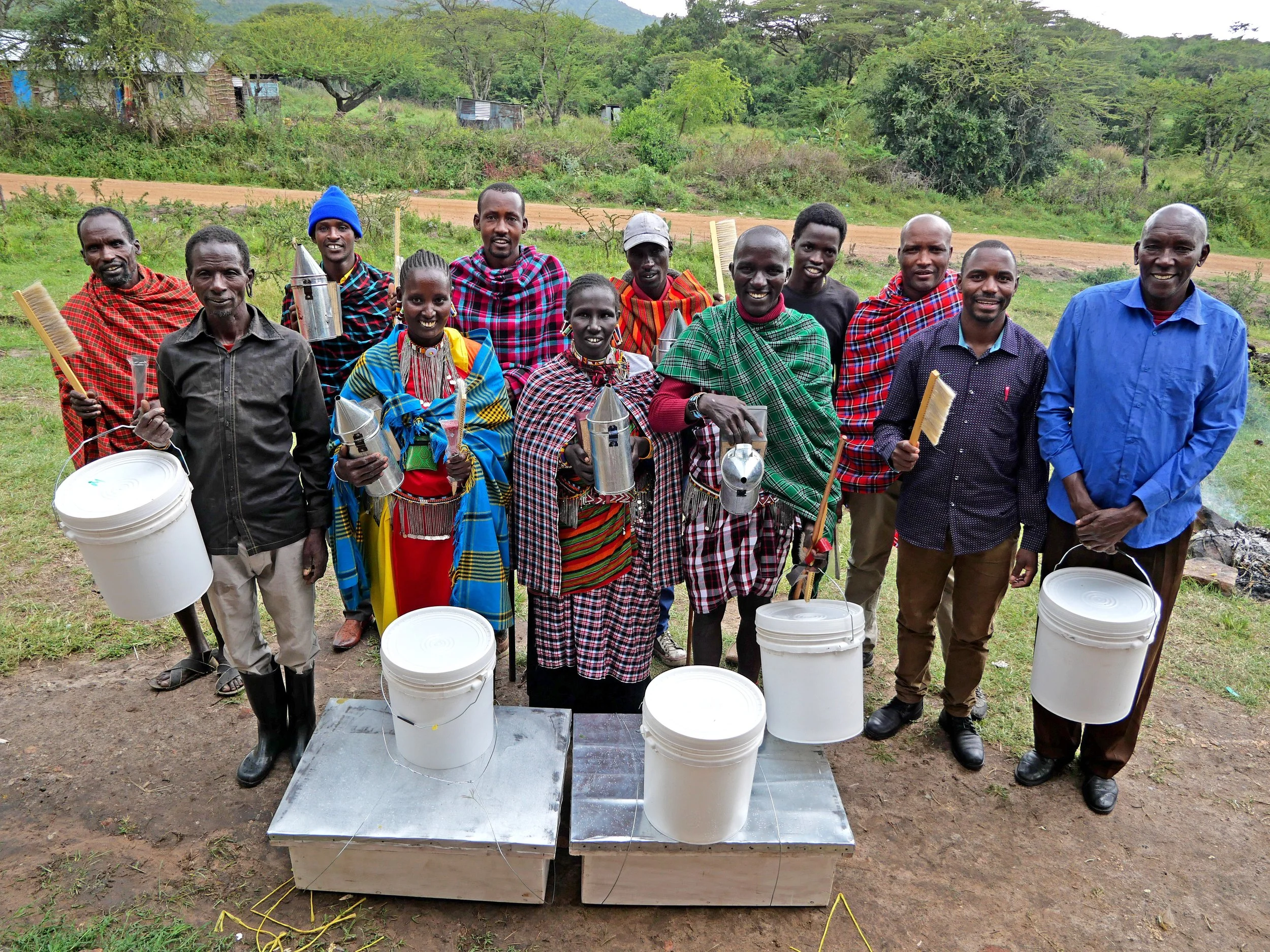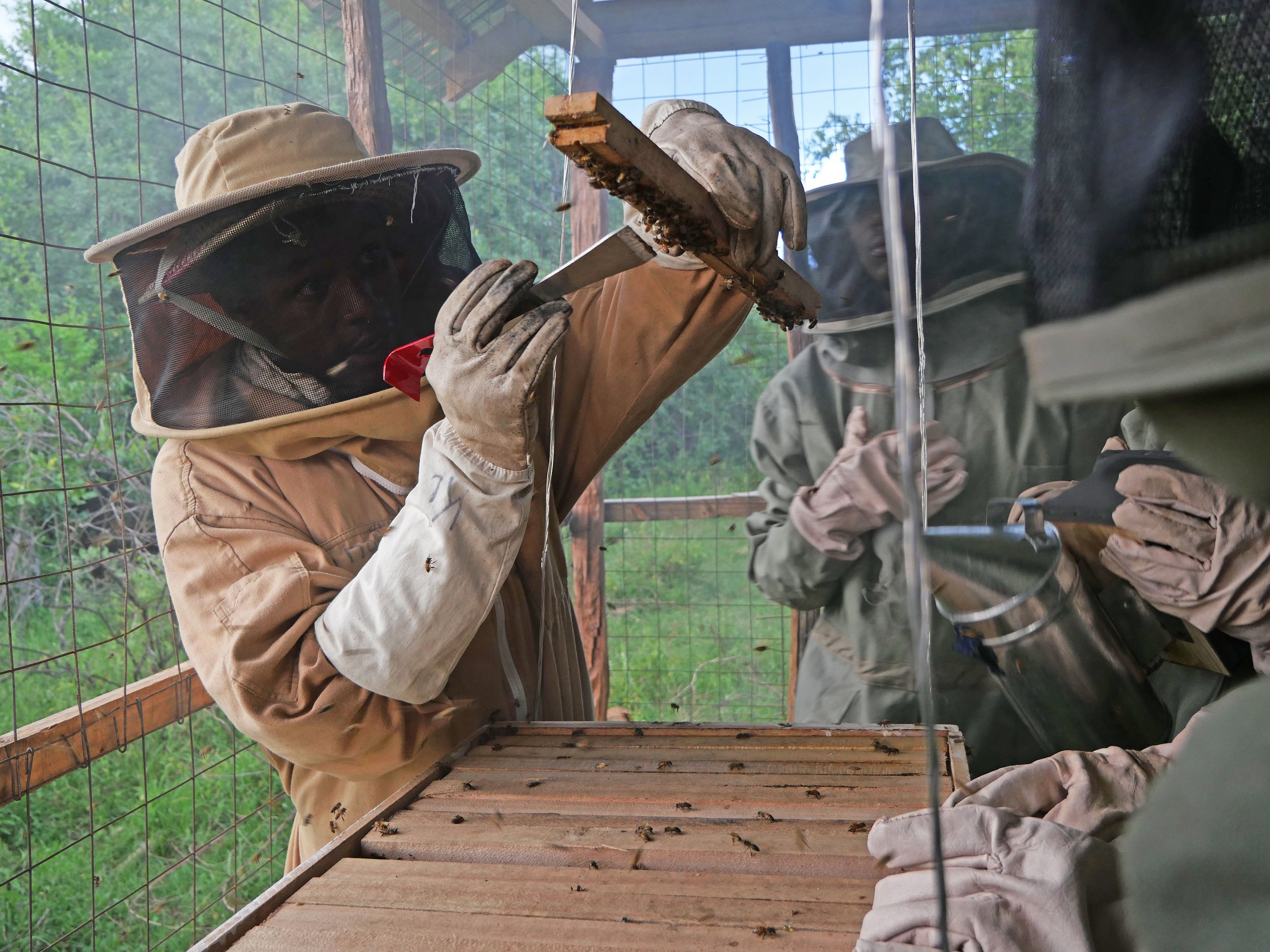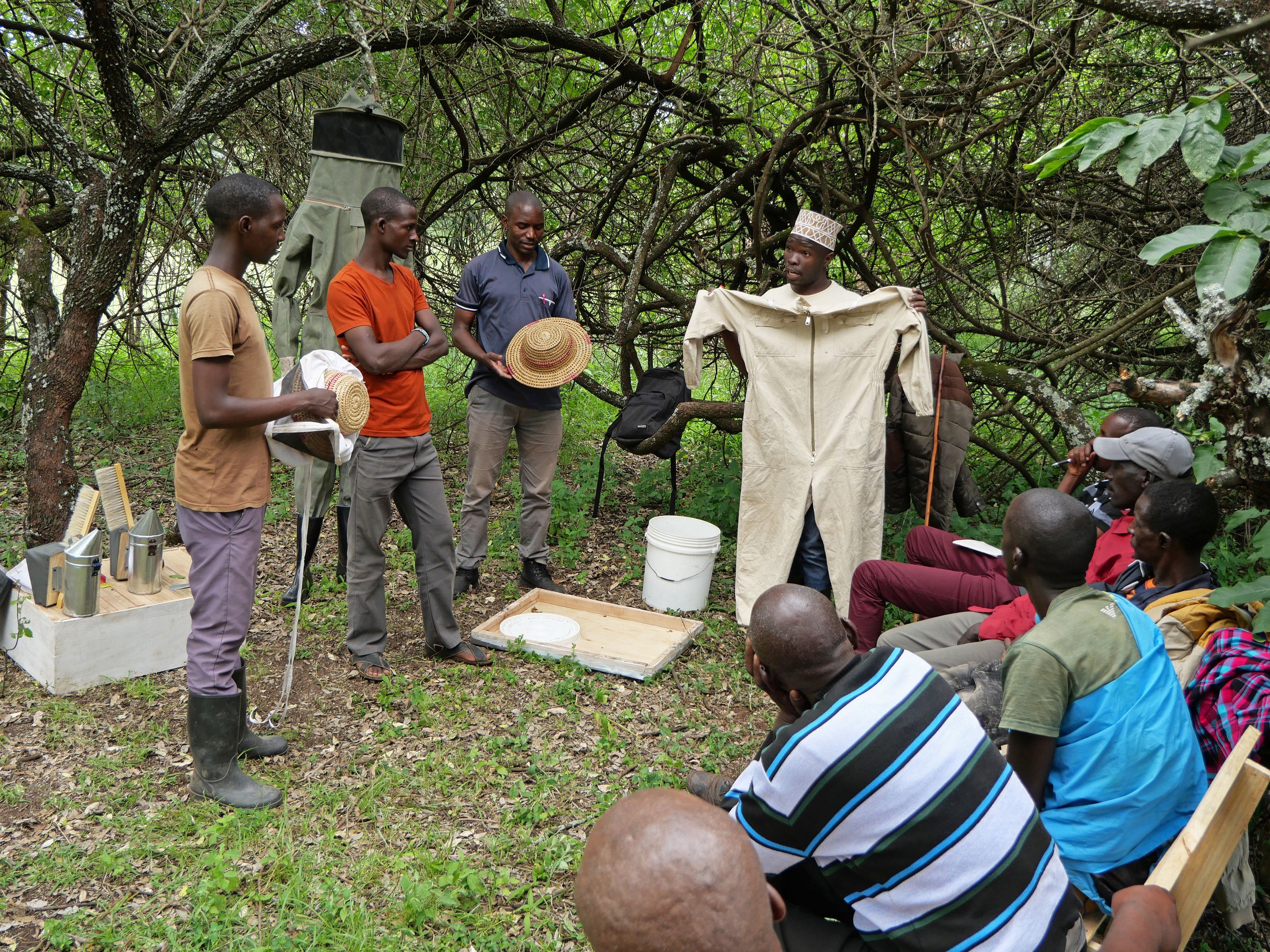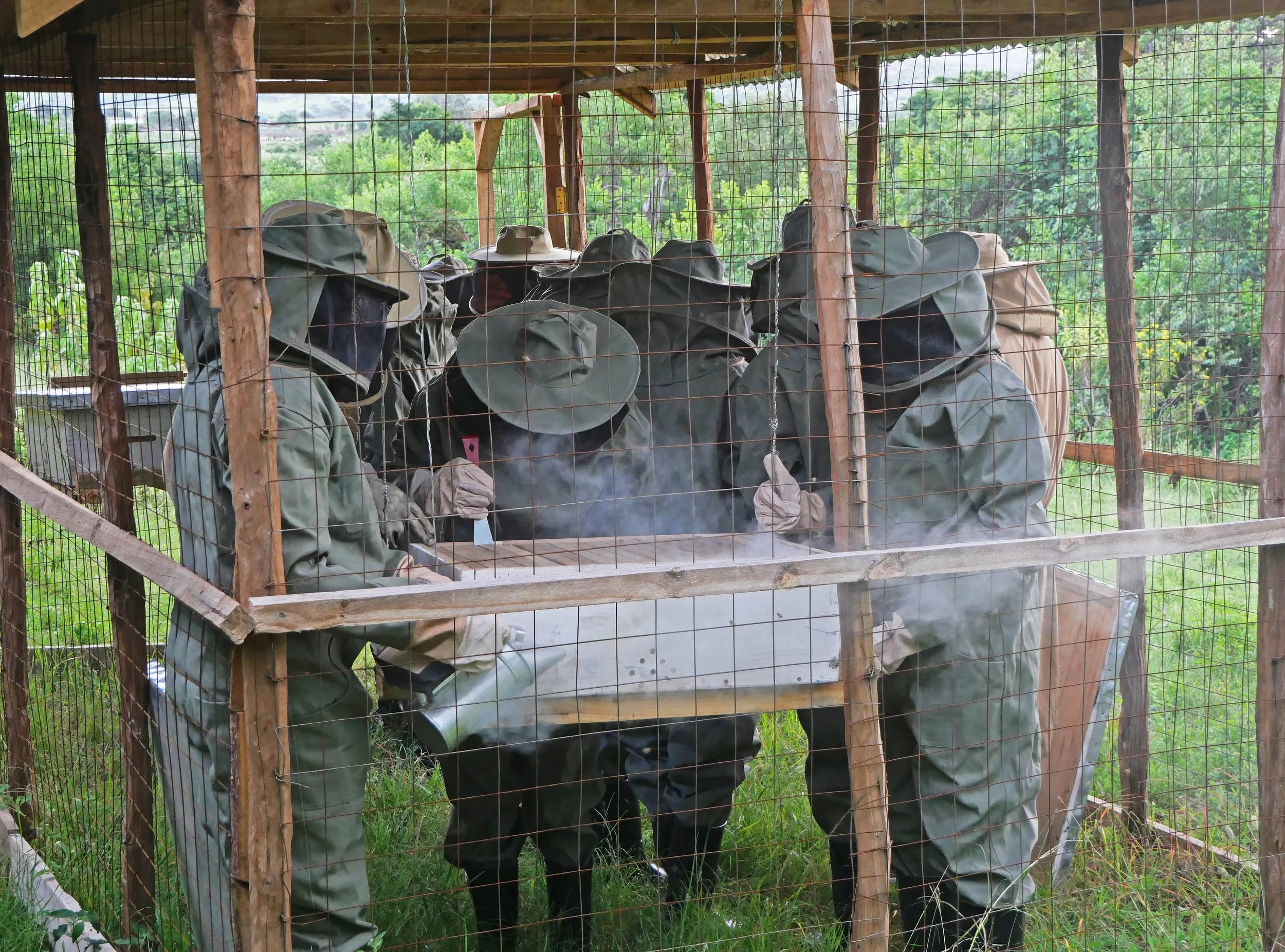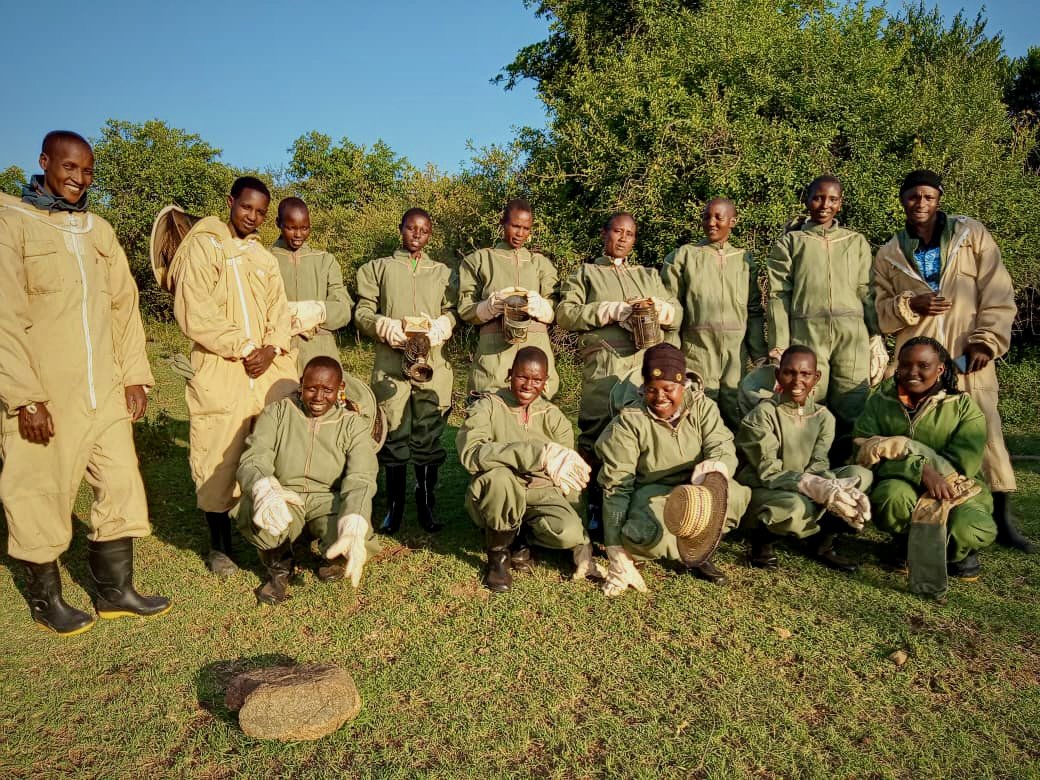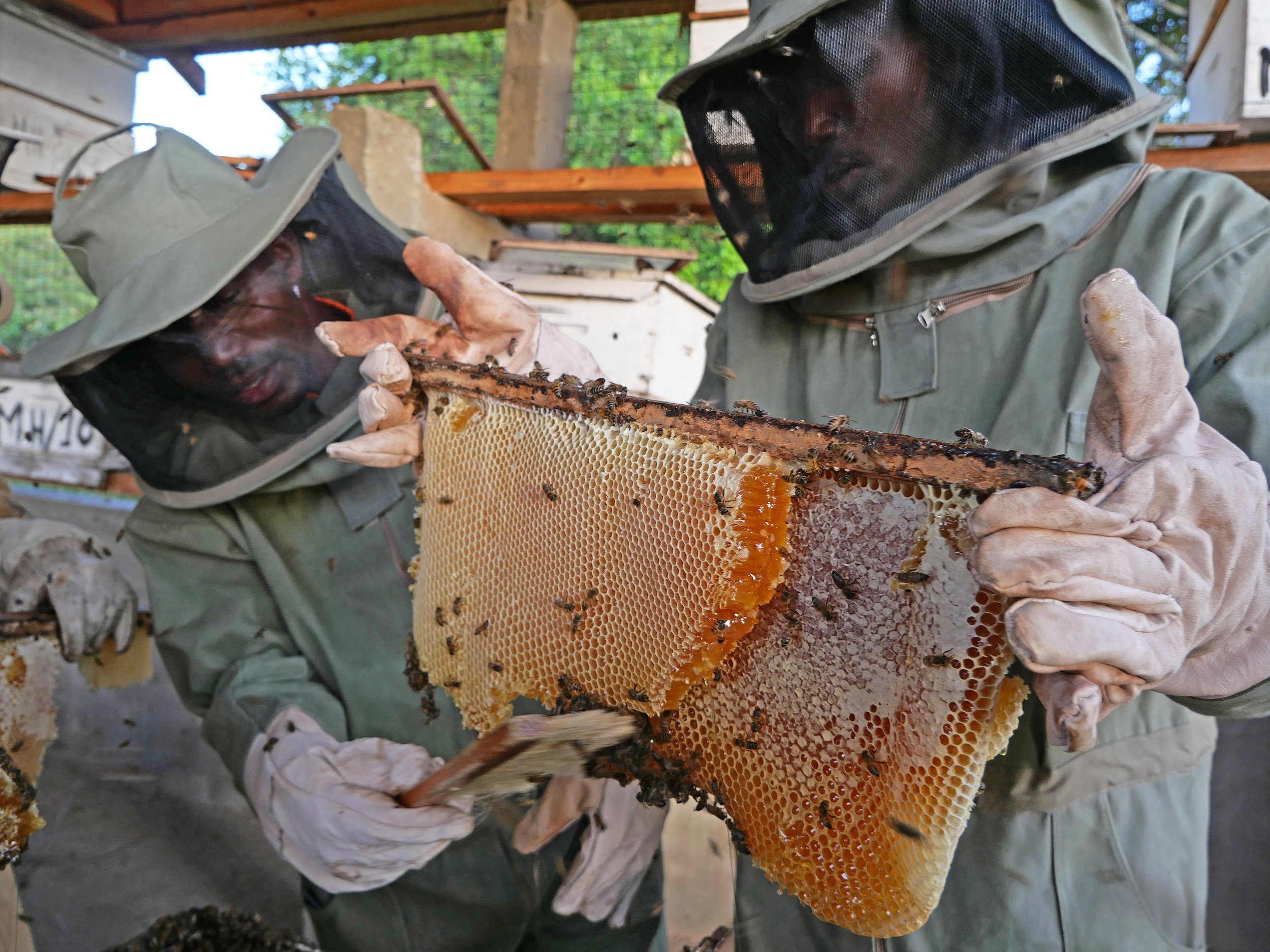A New Partnership with the US Forest Service!
Locally made, cotton canvas bee suits are supplied to each trainee.
Maasai Honey is thrilled to announce support from the US Forest Service, in order to conduct even more beekeeping trainings in rural Tanzania! This exciting opportunity will allow Maasai Honey to expand into other rural villages, reaching over 50 beneficiaries in 3 different locations. With the services of our local partner, Northern Tanzania Beekeeping Company, all beneficiaries will participate in an intensive 2-week beekeeping training course. They will also receive a complete beekeepers kit - protective gears, beekeeping tools, as well as two Tanzanian top-bar beehives.
Trainees learn about hive set-up and baiting.
While searching for trainees, we gauge both their interest and dediction to beekeeping, their long term goals, as well as their current economic status. Our goal is to give marginalized and disadvantaged individuals the opportunity to enter into a sustainable, income-generating business. Even after the training, beekeepers have the option to sell their harvests at a fair market price. In this way, training courses support the nature and wildlife, while also increasing the quality of life for local beekeepers.
We also wanted to reach the youth in such rural locations. With development occurring rapidly, theres a growing importance for education around the local wildlife and nature. In light of this, the grant also supports a Youth Program in Environmental Conservation for educating primary school students of Ololosokwan Village. Students will learn about sustainable living practices, effects of over-grazing, deforestation, as well as the importance of indigenous bees and wildlife. Together with our beekeepers, they will plant native tree species around the school.
Through both training in sustainable beekeeping practices and youth education, it is our goal that the program will have a positive impact on local nature and wildlife as well as the local people. After all, beekeeping and honey production is based on an interaction of these systems. It is our goal to not only provide knowledge and tools, but also to support beneficial social structures that build community. Oftentimes, training recipients of a village will form their own beekeeping cooperative, to support each other and work together on beekeeping activities. It is these types of social structures, combined with sustainable business strategies, that can have a lasting and growing impact!
Were grateful to the US Forest Service for making this possible! Stay tuned for snap-shots from upcoming trainings!
